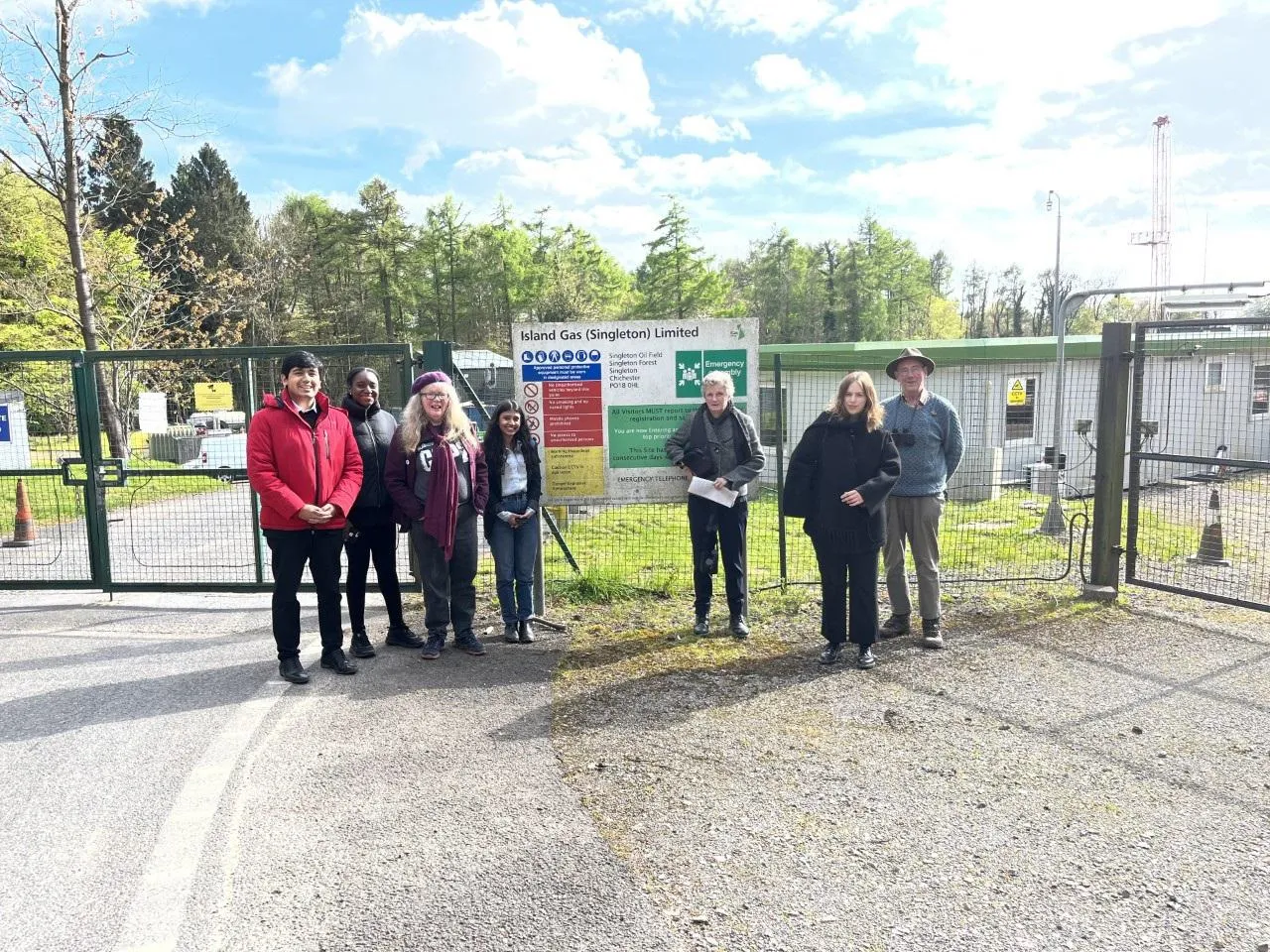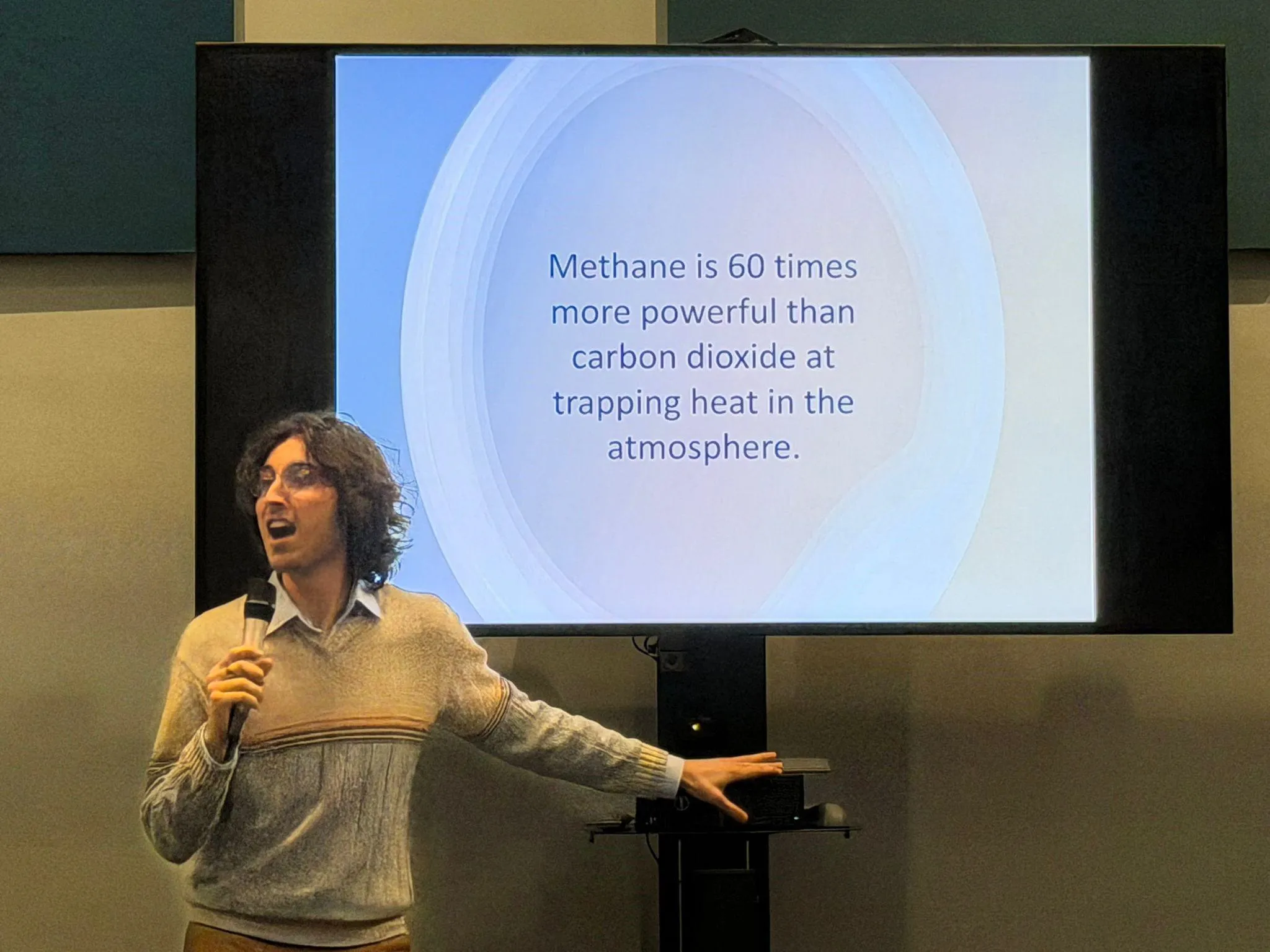Reducing methane emissions is one of the most effective ways to slow the adverse impacts of climate change, yet States consistently fail to do so. The Report serves as a practical tool to help concerned citizens, policymakers, and members of the community understand how the law can be used to address these challenges under both domestic and international frameworks.
Sydney Kagetsu, Final Year Politics, Philosophy, and Law Student
20 November 2025
King's Legal Clinic launches report offering practical guidance on how to seek legal redress for methane emissions
A milestone report launched by King’s Legal Clinic offers practical guidance on legal tools to tackle methane pollution.

Currently in the UK, there are 92 gas and oilfields emitting methane gas into the atmosphere and contributing to climate change.
Methane is treated as a “super-pollutant” under the UK’s Climate Change Act, and the UK government has recently published a methane action plan, which outlines national efforts to cut emissions as part of its net zero strategy. Prioritising the reduction of emissions is seen as a key factor to achieve this due to methane's strong warming potential.
Against this backdrop, the King’s Human Rights and Environment (HRE) Law Clinic has launched a report, ‘Methane Emissions from UK Onshore Oil and Gas: Regulation and Redress’ that provides a thorough analysis of the legal landscape surrounding methane regulation in the UK. The work was initiated as part of a King’s Undergraduate Research Fellowship (KURF), by former King’s student Saifeddine Benamar.
The report was inspired by the HRE Clinic’s work with a community based in South East England concerned about the poorly regulated Singleton oilfield, owned by STAR Energy and located in the South Downs National Park. The case highlighted a lack of legal avenues for citizens to hold the Government accountable, despite the UK’s climate and methane pledges. These challenges prompted the HRE Clinic to raise the issue on a policy level, submitting evidence to the House of Lords Inquiry on Methane and developing this report.

The report examines obligations under domestic and international law and practical legal remedies. The report aims to increase awareness and offer a practical guide to assist those interested in seeking legal redress for methane emissions.
The intentional focus on legal remedies enables the report to highlight the gap in access to environmental justice and to provide policymakers, practitioners, activists, and researchers with a clear overview of the legal tools available to address methane emissions. It offers accessible guidance for a broad range of stakeholders, including citizens, campaigners, lawyers, and policymakers.
The report highlights that effective monitoring and regulation of onshore oil and gas methane emissions are essential for the UK to meet its climate targets.
As delegates meet this month in Brazil for CoP 30, Brazil, China, and the United Kingdom co-hosted a Methane Summit featuring initiatives to slow the pace of methane. Back in the UK, our new report highlights the UK’s weak regulation of methane emissions from onshore oilfields and the need for more effective avenues for redress.
Sue Willman, Assistant Director of King's Legal Clinic and Senior Lecturer in Law

The report was officially launched as part of an event inspired by the Global Day of Action on climate change, as part of a series of globally coordinated events by university legal clinics. The event brought together lawyers, students, and activists. Baroness Sheehan, who led the House of Lords Inquiry into methane, spoke at the launch with barrister Acland Bryant of Garden Court Chambers and campaigner Emily Mott of Singleton Forest Watch.


